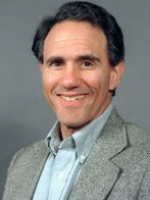Tuesday, January 31, 2006 - 12:30pm to 2:00pm
Mississippi Room, Coffman Memorial Union
For centuries, anthropologists, geneticists, molecular biologists, physicians, and sundry forensic scientists have been using biological indicia of individuality—from dermatoglyphics to DNA—for legal and social purposes. In this talk, Prof. Kaye described the process by which a biometric test or theory moves from the laboratory into the courtroom or the broader society. He drew on the history of DNA typing and ordinary fingerprinting for lessons about the process and how it can be improved. He also speculated on the future of the rapidly growing DNA databases for criminal investigations and the implications of genetic-identification technologies for personal privacy.
Listen to Professor Kaye's interview on Minnesota Public Radio.
Read the related article from the Minnesota Journal of Law, Science & Technology.
The Deinard Memorial Lecture on Law & Medicine is co-sponsored by the University of Minnesota's Joint Degree Program in Law, Health & the Life Sciences and the Center for Bioethics.
Support for the series comes from the law firm of Leonard Street and Deinard and the Deinard family.
Commentators:
Barbara A. Koenig, PhD
Mayo College of Medicine
William G. Iacono, PhD
Distinguished McKnight University Professor
University of Minnesota Department of Psychology
Continuing legal education credit (CLE) for attorneys (1.5 hours) has been approved.
The University of Minnesota is accredited by the Accreditation Council for Continuing Medical Education to provide continuing medical education for physicians.
Application has been submitted for AMA PRA Category 1 Credit. Determination of credit is pending. It is the policy of the University of Minnesota Office of Continuing Medical Education to ensure balance, independence, objectivity, and scientific rigor in all of its sponsored educational activities.
All participating faculty, course directors, and planning committee members are required to disclose to the program audience any financial relationships related to the subject matter of this program. Disclosure information is reviewed in advance in order to manage and resolve any possible conflicts of interest.

David H. Kaye is Regents' Professor of Law and Faculty Fellow at the Center for the Study of Law, Science, & Technology at Arizona State University. Following a clerkship on the U.S. Court of Appeals for the Ninth Circuit, Prof. Kaye practiced law in Portland, Oregon, and was an assistant special prosecutor on the Watergate Special Prosecution Force. His publications include 9 books and more than 100 articles and reviews in journals of law, philosophy, medicine, genetics, and statistics. He is widely regarded as one of the nation's leading experts on scientific evidence and statistical methods in law.